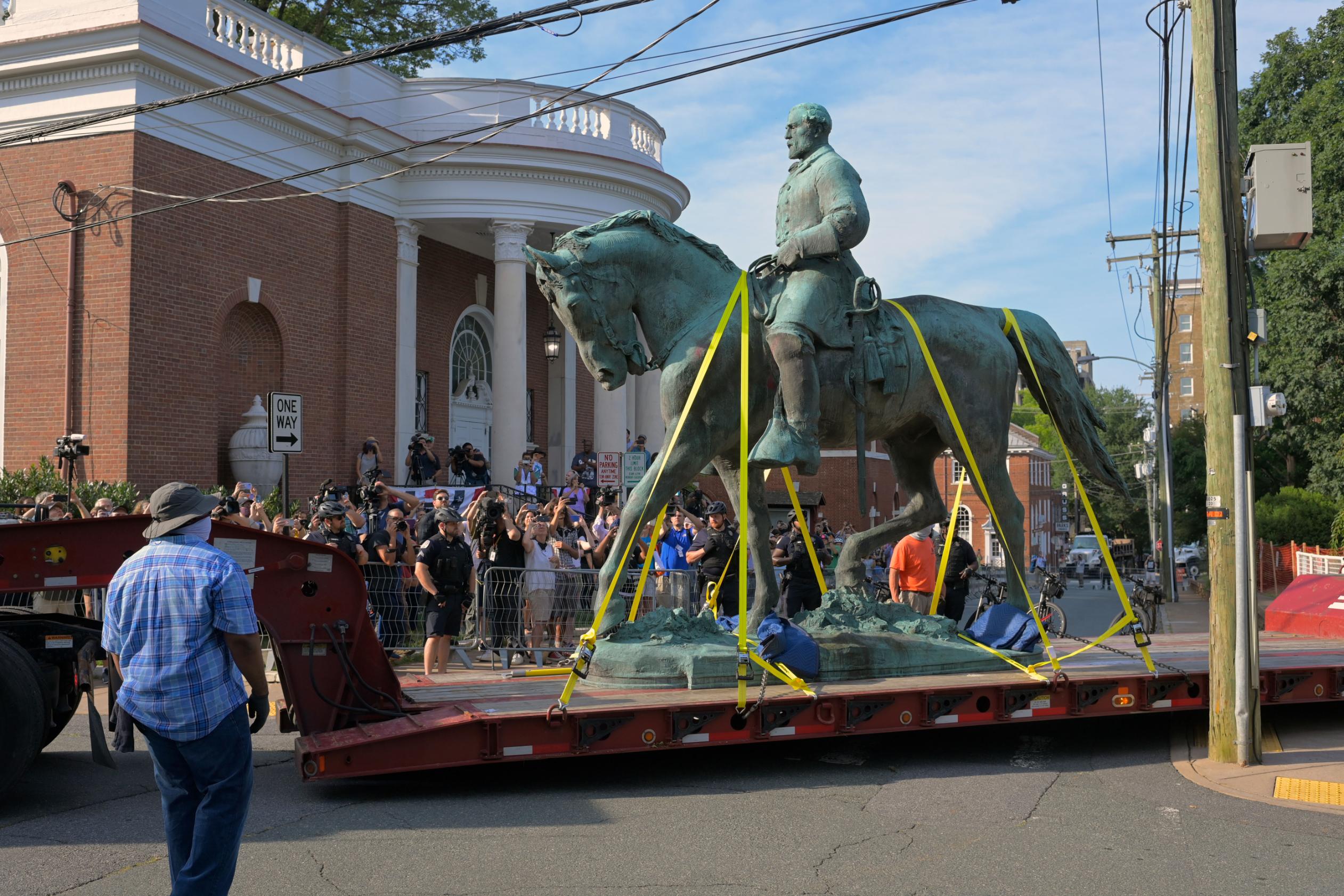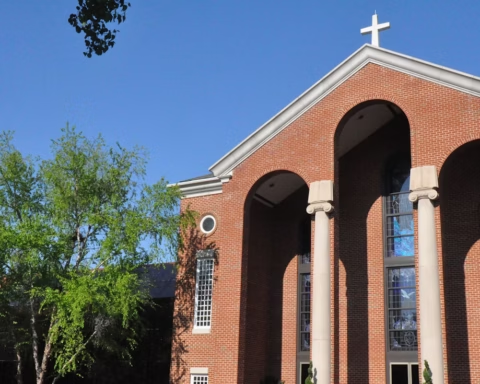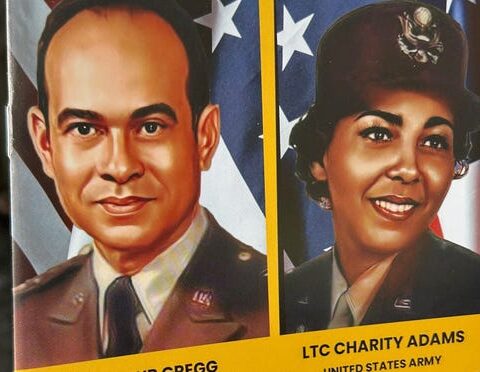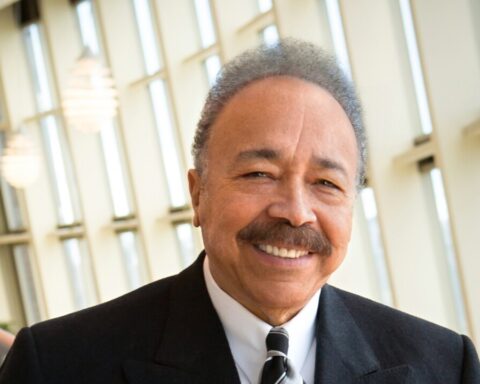An African American historical museum in Virginia is throwing its hat in the mix to turn what was once a daunting reminder of the country’s Confederate past and in recent years, violence, into a public display of art.
The Jefferson School African American Heritage Center in Charlottesville has submitted an offer to the City Council for its recently removed Confederate Gen. Robert E. Lee statue.
Several cities have made moves to remove contentious Confederate statues after becoming the subject of nationwide debate over the years. And it flared up in Charlottesville specifically after white nationalists marched in 2017 to protest the removal of the same Lee statue, and a counterprotester was killed amid violent clashes between demonstrators.
After their removal though, most of the statues were placed in storage facilities with no permanent relocation.
More than 160 Confederate symbols came down last year, according to the Southern Poverty Law Center.
After obtaining ownership, the Jefferson center plans to melt down the statue and commission an artist to create new art from the bronze material, according to a news release. After the work is completed, the new art would be offered to the City of Charlottesville for public installation.
Four years after deadly rally, Charlottesville ‘Unite the Right’ trial begins
The civil trial against the organizers of the “Unite the Right” rally in is set to start Monday to decide whether organizers had predetermined the event would turn violent.
The plaintiffs, who include town residents and counterprotesters injured in two days of clashes in August 2017, contend the organizers of the rally engaged in a conspiracy. The 10 individuals are seeking “compensatory and statutory” damages for physical and emotional injuries they suffered.
The rally organizers chose Charlottesville so the debate and protest around the statues could serve as a catalyst for a race and religious war, the complaint reads. White supremacists, neo-Nazis, along with groups such as the Proud Boys and the Loyal White Knights of the Ku Klux Klan, were in the city for events in May, June and July 2017.
Inviting input from the descendents of the enslaved
Two hours after the Lee statue was removed July 10, a statue of Confederate Gen. Thomas J. “Stonewall” Jackson was also removed from Court Square Park.
The Lee and Jackson statues were commissioned in 1917 and 1919 respectively, by Paul G. McIntire, a Charlottesville graduate of the University of Virginia, according to the University of Virginia School of Law. The Jackson statue was unveiled on October 19, 1921, according to the school. On May 21, 1924, Lee’s statue was unveiled.
At the time of removal, the city said it was looking for a new home for the statues at a museum, military battlefield or historical society.
The Jefferson center’s mission is “to honor and preserve the rich heritage and legacy of the African American community of Charlottesville/Albemarle, Virginia and to promote a greater appreciation for and understanding of, the contributions of African Americans and peoples of the Diaspora,” its website says.
Their proposal titled “Swords Into Plowshares” intends “to invite input from the descendents of enslaved persons,” according to a news release, “with the engagement process beginning in 2022, the 120th anniversary of Virginia’s 1902 state constitution which entrenched Jim Crow rule.”
“‘Swords Into Plowshares’ is Charlottesville’s opportunity to lead by creating a road map that can be followed by other communities that wish to impact history,” Dr. Douglas said. “It’s our hope that our entire community will embrace this defining moment.”
Throughout the week, the proposal has garnered support, Andrea Douglas, executive director of the Jefferson center told CNN Friday.
There are six other proposals the city is looking at for for one or both Confederate statues, Brian Wheeler, spokesperson for the City of Charlottesville told CNN.
So far the proposal has raised $500,000 in funding commitments through local, state and national arts and advocacy organizations.
The Charlottesville City Council and its City Manager have until January 12 to consider the offers, a news release said.







